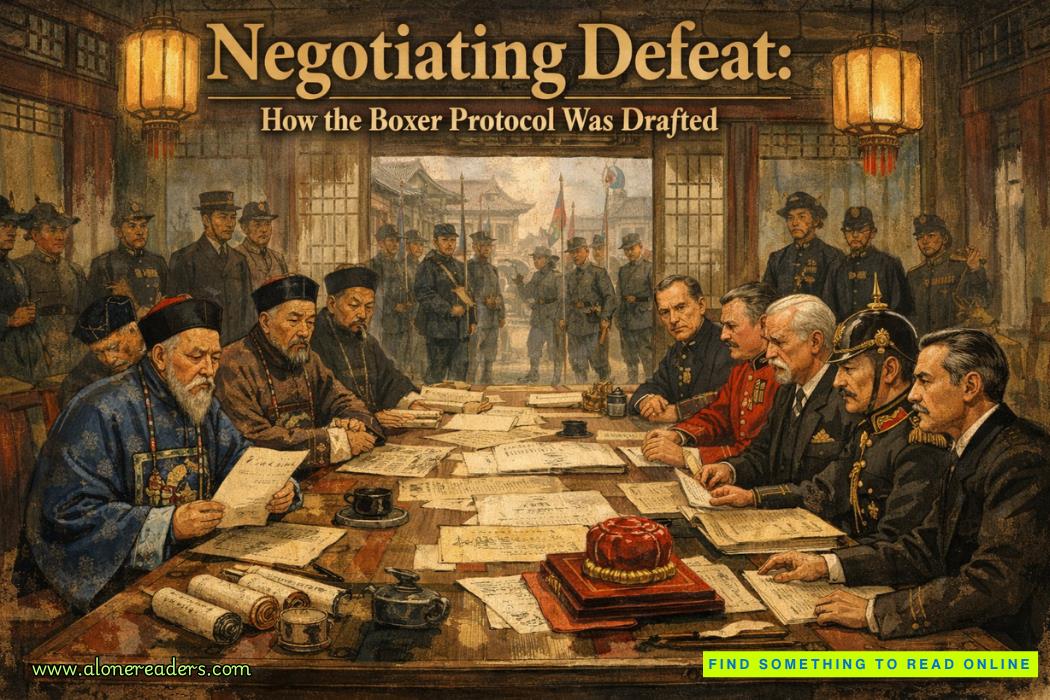Even now, the sight of it steadied her more than she expected.
She reached the bakery just as the tall clock at the end of Main struck ten. The street was busy with people dipping in and out of shops, their laughter and gentle conversation filling the air. Hazel unlocked the door and stepped inside quickly, closing it behind her to block out the noise. The soft creak of the floorboards welcomed her as she crossed the threshold.
She moved to the front window and peeled back one corner of the brown paper, letting in a triangle of morning light. A soft hum of electricity buzzed beneath the quiet; cooling units, the fridge in the back, the router tucked up on a shelf near the breaker box.
She moved into the kitchen, where the light hit differently. Her grandmother had planned every inch of it with her in mind, and it showed. Hazel could feel the quiet consideration in every finish, every drawer that opened exactly where her hand reached. The equipment was all there, lined up like a silent promise. Stainless steel bowls nested neatly beneath the prep counter. Mixing attachments. Pans in varying sizes, some still wrapped in protective plastic. A double-decker cooling rack. The stand mixer, matte black and shining, sat in the corner, simply waiting for her to settle in.
She walked to the back of the room and reached up toward the shelf near the router, meaning to grab a notepad she had spotted there and jot down a to-do list before the day slipped away from her.
But when she flipped open the cover, her breath caught.
It wasn’t blank.
Her grandmother’s handwriting filled the first few pages, neat checklists broken into tidy columns of equipment, ingredients, suppliers. Each item had been ticked off with careful precision, a few underlined or circled, annotated with names, numbers, tiny stars. Inthe margins, notes had been scrawled: a delivery date, a reminder to ask Ezra at the farmer’s market about eggs.
One page near the middle had been half-filled and folded slightly at the corner, marked not with a sticky note or scrap of paper, but with a slender rosary. Its beads were a dusky pearl, smooth from decades of use, and the delicate crucifix at the end had been rubbed almost flat at the edges, worn with familiarity and routine.
Hazel reached out and brushed her fingertips along the chain.
She recognized it immediately as her grandmother’s.
It used to hang from the corner of the headboard in her room, or sometimes lay coiled on the nightstand, like a promise tucked beside her glasses and an empty mug with the remnants of tea staining the bottom. It had come with her from California, and before that, had belonged to Hazel’s great-grandmother— a woman who’d crossed the ocean from the Philippines as a young girl, gripping a stranger’s hand and using a borrowed name, stepping off the boat with little more than a suitcase and the weight of all the better things she’d been told were waiting.
Hazel could almost picture her barefoot on some dusty kitchen floor in Stockton or San Francisco, the scent of garlic and oil in the air, a baby on her hip, whispering prayers over broth and rice and salt, threading faith through the smallest corners of her day. And then her daughter doing the same, though with less intensity. And Hazel’s mother, even less. Their faith and connection to their roots had faded over the years, through the generations, but it was never trulygone.
The rosary had passed from hand to hand like a compass, a quiet tether. Not just to God, maybe, but to home and memory. To the belief that building something gentle in a hard world was a kind of sacred work. Different, sure, but still valuable. Still important.
Hazel exhaled slowly, the air catching at the edges.
She turned the page carefully, wrapping the rosary around her wrist, and let her eyes trace along the words written there.
Plates, bowls, mugs — Malcolm.
Her eyes stopped there, pulse slowing. She read the name again, then looked up instinctively, as if the walls themselves might offerconfirmation. Of course. She hadn’t connected it before, but now she saw it clearly: the ceramic studio just across the street, the initials at the base of the mugs in her grandmother’s kitchen, the easy way the name had appeared like an afterthought— when really, it was anything but. She hadn’t realized Malcolm had moved home. She couldn’t remember seeing his familiar face within the sea of people at the funeral the week earlier.
Before the realization could land fully, a knock echoed from the front of the shop.
Just once. Brief, precise, and followed by the scrape of a shoe on worn concrete.
Then a voice, slightly muffled, just close enough to be heard.
“Delivery. Of the sentimental variety.”
Hazel blinked. She tucked the notepad beneath one arm and crossed back through the archway toward the front of the bakery, her thighs brushing together beneath the hem of her denim shorts. Her breath caught on a strange thread of anticipation.
She opened the door slowly, though she’d already recognized the voice.
Malcolm Ward stood just beyond the threshold, balancing two boxes in his arms with a third cradled against his hip. He was exactly as she remembered and yet entirely different. His skin was a warm, rich brown, like polished walnut in the late afternoon light. His cream linen shirt sleeves were cuffed neatly to the elbows, revealing forearms etched with sharp black fine-line tattoos. Hazel didn’t let her gaze linger, but she caught a few details anyway: a blooming rosebud, a fishing boat heading out to sea, a jagged cliff lined with pine.
A mechanical pencil was tucked behind one ear, and two silver rings— one smooth, the other textured like hammered metal— glinted on his fingers as he shifted the boxes. He smelled like coffee and something faintly metallic, like the memory of heat off a kiln.
His smile was small and quiet, but real. Familiar. “Hey, Hazel.”
She hadn’t seen his face in years, and yet it settled over her like warmth after cold air— steadying in the way a porch light steadies a walk home in the dark. Malcolm had always been that way. Even backwhen she was a teenager, half-formed and sharp around the edges, he’d been a kind, grounding presence. The sort of friend who never asked for anything, never expected more than she had to give.
Their paths had never blurred, not even for a second. He was the big brother type, all calm energy and quiet patience, someone she could sit beside in total silence without needing to fill it. When the world felt too loud, too close, too much, he gave her space to justbe.
“Hey, Mal.”















